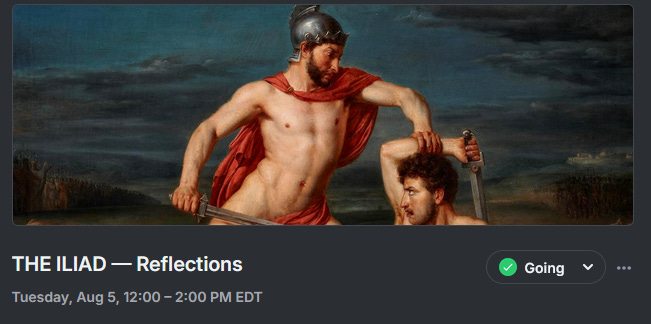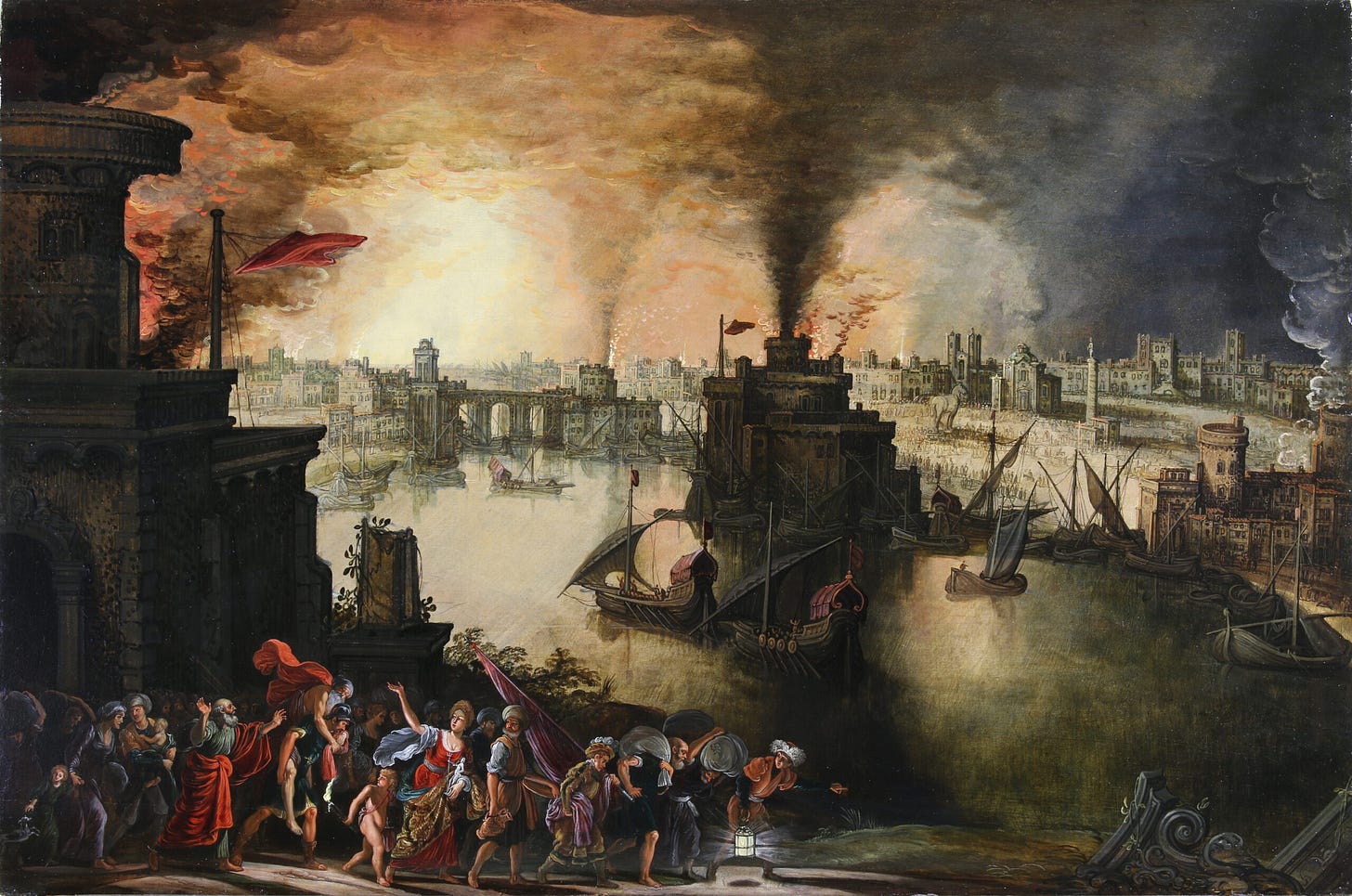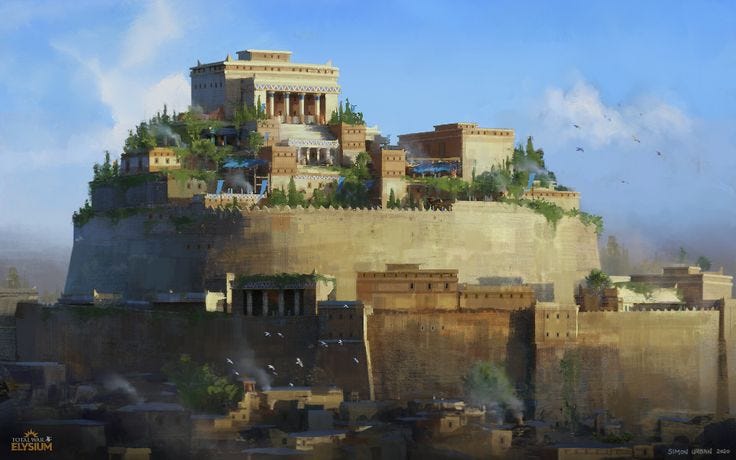Why We Need Conflict
The true meaning of Homer's Iliad
Though often remembered for its blood, death, and fury, The Iliad carries a hidden philosophical eloquence underneath Homer’s poetry. One chapter in particular stands out from the rest of the war story, a chapter of unique contrast where Homer waxes his philosophical grandeur. It gives you a look into the heart and soul of not just Homer the poet, but through Homer, a gaze into the heart of an ancient man.
That chapter is book 18 — The Shield of Achilles
In this chapter Achilles is gifted a shield by the gods, right before his legendary rampage, but this is no ordinary gift of war. The shield of Achilles is actually a philosophical vision of human nature. It displays a beautiful artistic vision of two cities — one of peace and one of war. Behind this artistry is a central idea:
Conflict is central to mankind, not just as a horrid reality of violence, but as the mediating factor in which man can ascend towards the divine.
Here’s a closer look at the Shield of Achilles, and its 3,000 year insights into the heart of human nature…
Don’t forget to join our FREE book club!
We started a digital book club to study the great texts of Western Civilization — from Dante to Dostoevsky — together. Inside, you’ll get:
Live community book discussions (bi-weekly)
New, deep-dive literature essays every week
The entire archive of book reviews + our 100 great texts reading list
We’re diving back into The Iliad on Tuesday, August 5th at 12 PM EDT — hope to see you there.
Sign up below to attend — all paid members can join the live discussion up on stage…
Note: paid subscribers via Substack will automatically receive an access link for the live calls.
A City at War
Again, the shield of Achilles is one drawing with two cities — one at peace and one at war.
The “city at war” side of the shield is displayed first. It shows a city’s inhabitants, armed and crouched in ambush, waiting to surprise the invading army.
Beyond this conflict are depictions of the gods who saturate the battlefield. They watch in earnest and participate with vigor, and a central idea emerges already.
For Homer and the Greeks, the city of war is the realm of the gods. It is the realm of the violent, the primordial, the chaotic, and the destructive where the Greek Gods feel most at home. This is fitting, of course, as the gods themselves are the passions of the human psyche personified to the extreme (Aphrodite is Eros, Ares is wrath, etc.)
Also interesting, as we’ll soon see, is that the gods are not present in the City of Peace.
The implicit suggestion is, for Homer, to establish virtue, justice, and harmony amongst man, they are not to be like the pagan gods. To be a pagan god is merely to celebrate power and bloodshed. For instance, Achilles is considered most god-like in the Iliad during his rage and slaughter — when his rationality is all but destroyed.
So the virtuous man — he who establishes peace in the ancient world — is a man who deigns not to be like the gods, but a man who embraces his humanity to the fullest.
Now let’s take a closer look at the City of Peace. Here, we’ll find Homer at his most philosophically brilliant, and see the answer to solving the bloodshed, slaughter, and terror of the Iliad…
The City at Peace
Again, there are no gods here. The first thing you see is a wedding with festivities. There is love, unity, joy, singing, and dancing. It’s a perfectly fitting portrait of the City at Peace. It reflects the Aristotelian idea that man is a political animal, and therefore flourishes when he is in joyful communion with his neighbor.
The converse is also true, as Scripture reminds us — “it is not good for man to be alone.”
Yet wedding festivities aren’t all that you see in the shield of peace. In fact, the most interesting aspect of the city of peace is what comes next:
There is an intense civil dispute mitigated by a judge, jury, and two contenders.
This is strange — why does the city of peace show a hotly debated and contested conflict?
The brilliant idea is this:
For Homer, the peaceful city is not a Garden of Eden, or some utopia where everyone eats cake and dances. No, even in a city of peace, conflict is guaranteed, for conflict is inevitably tied to man.
The only way to truly build a city of peace then, man must not seek to eliminate violence — which is intrinsically part of reality — rather man must learn how to handle violence. It’s this confrontation of evil, immorality, and injustice that actually leads man to revelations about Truth, Beauty, Goodness, and meaning.
Let’s see then, what Homer says is the mediating process to handle conflict with virtue…







